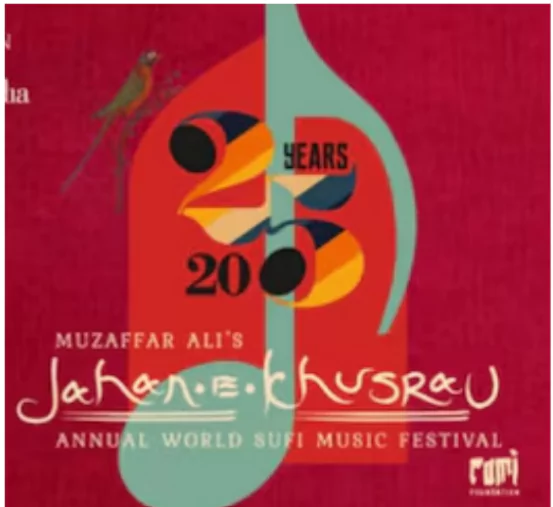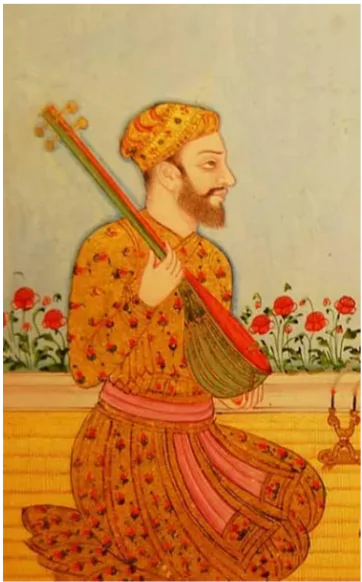Prime Minister Shri Narendra Modi inaugurated the prestigious Sufi music festival, Jahan-e-Khusrau 2025, on February 28 at Sunder Nursery, New Delhi.
About Jahan-e-Khusrau

- Jahan-e-Khusrau is an international festival dedicated to Sufi music, poetry, and dance.
- The festival is bringing together artists from across the world to celebrate the legacy of Amir Khusrau.
- It is organized by the Rumi Foundation.
- The festival was founded in 2001 by renowned filmmaker and artist Muzaffar Ali.
- This year marks the 25th anniversary of the Jahan-e-Khusrau.
Amir Khusrau
- Amir Khusrau (1253–1325) was a 13th-century Sufi poet, musician, and scholar.
- He played an important role in shaping Indian literature, music, and culture.
- His works symbolized the fusion of Persian, Turkic, and Indian traditions, embodying the spirit of the Ganga-Jamuni tehzeeb.
 Title of ‘Amir’: Sultan Jalaluddin Khalji bestowed upon Khusrau the title of ‘Amir’.
Title of ‘Amir’: Sultan Jalaluddin Khalji bestowed upon Khusrau the title of ‘Amir’. - Tuti-yi-Hind: He is bestowed with the sobriquet of Tuti-yi-Hind, or the ‘Parrot of India’.
- The ‘Indian Turk’: Khusrau was born in 1253, in Patiyali (present-day Uttar Pradesh), to a Turkish father and an Indian mother.
- He often referred to himself as an “Indian Turk,” symbolizing the blending of two rich cultures.
- Poet in the Royal Court: Khusrau served as a court poet under five Delhi Sultans, including Muiz ud din Qaiqabad, Jalaluddin Khalji, Alauddin Khalji, Qutbuddin Mubarak Shah, and Ghiyasuddin Tughlaq — and many other powerful patrons over five decades
- Spiritual Bond with Nizamuddin Auliya: Khusrau was a devoted disciple of the Chishti saint Nizamuddin Auliya.
Khusrau’s contributions to Music and Literature
- He wrote in Persian and Hindavi, excelling in praise poetry that legitimized the rule of his patrons.
- He is credited with developing Hindavi, the precursor to modern Hindi and Urdu.
- He pioneered Sufi qawwali and contributed to Indian classical music.
- He is credited with crafting dozens of ragas and creating ornate khayal music.
- Some sources attribute the invention of the sitar and tabla to him.
- His famous compositions include Chhaap Tilak, Zehal-e-Maskeen, and Sakal Ban Phool Rahi Sarson.
Conclusion
Amir Khusrau remains a timeless icon of India’s composite culture, celebrated for his literary brilliance, musical innovations, and Sufi devotion. His influence continues to resonate in poetry, music, and the cultural fabric of India.
![]() 1 Mar 2025
1 Mar 2025


 Title of ‘Amir’: Sultan Jalaluddin Khalji bestowed upon Khusrau the title of ‘Amir’.
Title of ‘Amir’: Sultan Jalaluddin Khalji bestowed upon Khusrau the title of ‘Amir’.